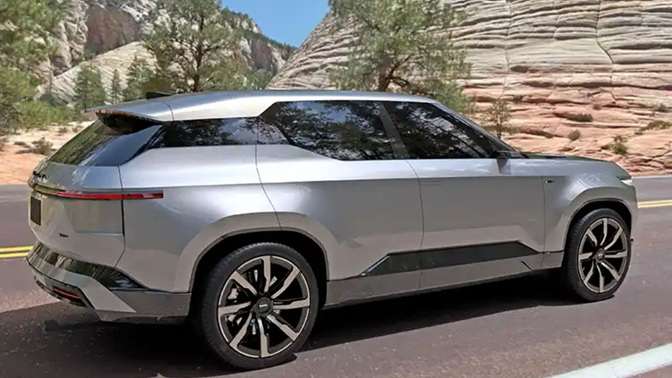EV Charging Time Calculator
Calculate how long it will take to charge your electric vehicle
Estimated charging time:
This accounts for approximately 10% energy loss during charging
Formula used: Charging Time = (Battery Capacity × (Target Charge – Current Charge) / 100) / Charging Power × 1.1
The 1.1 multiplier accounts for the 10% energy loss during charging (equivalent to dividing by 0.9).

Electric vehicles are transforming how we think about transportation, but charging time remains one of the most common concerns for both current and prospective EV owners. Understanding how long it takes to charge your vehicle is essential for planning trips and daily use. Our EV Charging Time Calculator simplifies this process, giving you accurate estimates tailored to your specific vehicle and charging setup.
This comprehensive guide will walk you through everything you need to know about calculating EV charging times, using our calculator effectively, and optimizing your charging strategy.
How to Use the EV Charging Time Calculator 2025
Our calculator is designed to be intuitive, but these steps will help you get the most accurate results:
Step 1: Enter Your Battery Capacity
Locate your EV's battery capacity in kilowatt-hours (kWh). This information is typically found in your vehicle's specifications manual or on the manufacturer's website.
Common EV Battery Capacities:
| Vehicle Type | Typical Battery Capacity (kWh) |
|---|---|
| Small EV | 30-45 kWh |
| Medium EV | 50-70 kWh |
| Large EV | 75-100 kWh |
| Luxury/Long Range | 100-150 kWh |
Step 2: Input Charging Power
Determine the power rating of your charging equipment in kilowatts (kW). This varies significantly based on charger type:
Charging Speed Comparison:
- Standard Wall Outlet (Level 1): 1.4-2.3 kW
- Home Charging Station (Level 2): 3.3-11.5 kW
- Public Charging Station: 7-22 kW
- DC Fast Charger: 50-350 kW
Step 3: Set Charge Levels
Use the sliders to indicate your current charge level and desired target charge. For battery health, it's generally recommended to charge to 80-90% for daily use rather than consistently charging to 100%.
Step 4: Calculate and Interpret Results
Click calculate to see your estimated charging time. The calculator automatically accounts for approximately 10% energy loss that occurs during charging.
The Science Behind the Calculation
Charging Time Formula
The calculator uses this formula to determine EV Charging Time Calculator:
Charge Time (hours) = (Battery Capacity × (Target Charge % - Current Charge %) / 100) ÷ Charging Power × 1.1
The multiplication factor of 1.1 accounts for the approximately 10% energy loss that occurs during charging due to:
- Heat generation in cables and connectors
- AC to DC conversion (for most chargers)
- Battery management system operations
Example Calculation
Let's calculate the charging time for a 75 kWh battery going from 20% to 80% using a 7.4 kW charger:
- Energy Needed = 75 kWh × (80 - 20)/100 = 45 kWh
- Raw Charging Time = 45 kWh ÷ 7.4 kW = 6.08 hours
- Adjusted Time = 6.08 hours × 1.1 = 6.69 hours
- Final Estimate: Approximately 6 hours and 41 minutes
Factors That Affect Charging Time
Several variables can influence actual charging times:
- Battery Temperature: Cold batteries charge more slowly
- Battery Age: Older batteries may have reduced charging efficiency
- Vehicle Limitations: Some EVs have maximum acceptance rates below the charger's capacity
- Shared Circuits: Power reduction when multiple vehicles use the same circuit
- State of Charge: Charging slows significantly above 80% capacity
| Battery Capacity (kWh) | Charger | |||||||
|---|---|---|---|---|---|---|---|---|
| 2.4 kW | 3.7 kW | 7.7 kW | 11 kW | 22 kW | 50 kW | 100 kW | 120 kW | |
| 5 kWh | 2h 19m | 1h 31m | 0h 44m | 0h 31m | 0h 16m | 0h 7m | 0h 4m | 0h 3m |
| 10 kWh | 4h 38m | 3h 1m | 1h 27m | 1h 1m | 0h 31m | 0h 14m | 0h 7m | 0h 6m |
| 15 kWh | 6h 57m | 4h 31m | 2h 10m | 1h 31m | 0h 46m | 0h 20m | 0h 10m | 0h 9m |
| 20 kWh | 9h 16m | 6h 1m | 2h 54m | 2h 2m | 1h 1m | 0h 27m | 0h 14m | 0h 12m |
| 25 kWh | 11h 35m | 7h 31m | 3h 37m | 2h 32m | 1h 16m | 0h 34m | 0h 17m | 0h 14m |
| 30 kWh | 13h 54m | 9h 1m | 4h 20m | 3h 2m | 1h 31m | 0h 40m | 0h 20m | 0h 17m |
| 35 kWh | 16h 13m | 10h 31m | 5h 4m | 3h 33m | 1h 47m | 0h 47m | 0h 24m | 0h 20m |
| 40 kWh | 18h 32m | 12h 1m | 5h 47m | 4h 3m | 2h 2m | 0h 54m | 0h 27m | 0h 23m |
| 45 kWh | 20h 50m | 13h 31m | 6h 30m | 4h 33m | 2h 17m | 1h | 0h 30m | 0h 25m |
| 50 kWh | 23h 9m | 15h 1m | 7h 13m | 5h 4m | 2h 32m | 1h 7m | 0h 34m | 0h 28m |
| 55 kWh | 25h 28m | 16h 31m | 7h 57m | 5h 34m | 2h 47m | 1h 14m | 0h 37m | 0h 31m |
| 60 kWh | 27h 47m | 18h 2m | 8h 40m | 6h 4m | 3h 2m | 1h 20m | 0h 40m | 0h 34m |
| 65 kWh | 30h 6m | 19h 32m | 9h 23m | 6h 34m | 3h 17m | 1h 27m | 0h 44m | 0h 37m |
| 70 kWh | 32h 25m | 21h 2m | 10h 7m | 7h 5m | 3h 33m | 1h 34m | 0h 47m | 0h 39m |
| 75 kWh | 34h 44m | 22h 32m | 10h 50m | 7h 35m | 3h 48m | 1h 40m | 0h 50m | 0h 42m |
| 80 kWh | 37h 3m | 24h 2m | 11h 33m | 8h 5m | 4h 3m | 1h 47m | 0h 54m | 0h 45m |
| 85 kWh | 39h 22m | 25h 32m | 12h 16m | 8h 36m | 4h 18m | 1h 54m | 0h 57m | 0h 48m |
| 90 kWh | 41h 40m | 27h 2m | 13h | 9h 6m | 4h 33m | 2h | 1h | 0h 50m |
| 95 kWh | 43h 59m | 28h 32m | 13h 43m | 9h 36m | 4h 48m | 2h 7m | 1h 4m | 0h 53m |
| 100 kWh | 46h 18m | 30h 2m | 14h 26m | 10h 7m | 5h 4m | 2h 14m | 1h 7m | 0h 56m |
| 110 kWh | 50h 56m | 33h 2m | 15h 53m | 11h 7m | 5h 34m | 2h 27m | 1h 14m | 1h 2m |
| 120 kWh | 55h 34m | 36h 3m | 17h 19m | 12h 8m | 6h 4m | 2h 40m | 1h 20m | 1h 7m |
| 130 kWh | 60h 12m | 39h 3m | 18h 46m | 13h 8m | 6h 34m | 2h 54m | 1h 27m | 1h 13m |
| 140 kWh | 64h 49m | 42h 3m | 20h 13m | 14h 9m | 7h 5m | 3h 7m | 1h 34m | 1h 18m |
| 150 kWh | 69h 27m | 45h 3m | 21h 39m | 15h 10m | 7h 35m | 3h 20m | 1h 40m | 1h 24m |
Tips for Optimizing EV Charging Time Calculator
- Time Your Charging: Charge during off-peak hours to save money and reduce grid strain
- Practice ABC (Always Be Charging): Top up frequently rather than waiting for deep discharges
- Precondition Your Battery: Warm your battery before charging in cold weather for faster charging
- Use Scheduled Charging: Many EVs allow you to schedule charging to finish just before you need the vehicle
- Don't Always Charge to 100%: For daily use, charging to 80-90% is better for battery longevity
Frequently Asked Questions
Why does charging slow down as the battery gets full?
Lithium-ion batteries require reduced charging power as they approach full capacity to prevent overcharging and reduce stress on the battery cells, which extends battery life.
Can I use any charger with my EV?
Most EVs use standard connectors (J1772 for Level 2, CCS or CHAdeMO for DC fast charging), but you should always verify compatibility with your specific vehicle.
How accurate is the charging time calculator?
Our calculator provides a close estimate, but actual times may vary by 10-15% based on the factors mentioned above. Your vehicle's onboard charging timer will always be more accurate for specific situations.
Is fast charging bad for my battery?
Occasional use of DC fast charging has minimal impact, but frequent use can accelerate battery degradation over time. For daily charging, Level 2 charging is recommended.
Understanding EV charging times doesn't need to be complicated. With our EV Charging Time Calculator and the information in this guide, you can confidently plan your charging strategy, whether you're charging at home overnight or topping up during a road trip.
Remember that while calculations provide helpful estimates, actual charging times may vary based on conditions and your specific vehicle. With practice, you'll develop an intuitive sense of your EV's charging needs that fits seamlessly into your lifestyle.
Similar Automotive Calculators

